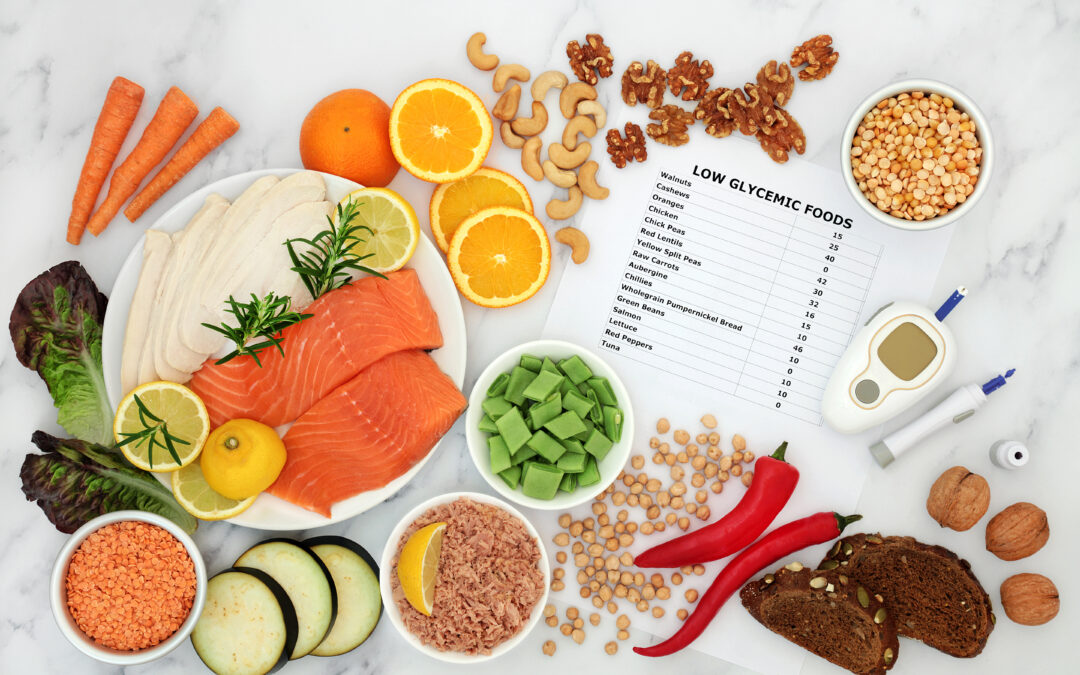Eat carbs. No, wait, avoid carbs at all costs! On the other hand, carbohydrates give you energy so…eat them, but be sure you stay away from fat. Eating fat makes you fat, right?
Does trying to implement a healthy diet make you feel like you are on a roller coaster? The truth is many of us are so confused about what to eat. There are voices coming at us from all directions declaring foods as good or bad or right or wrong. Certain eating styles are touted as a cure-all yet fail to take into account how different we all are. Innova Primary Care knows that the challenges of eating healthy can be utterly overwhelming. Before you give up entirely, let us help you simplify healthy eating for you. Here’s the key: it doesn’t have to be complicated.
So, you think you are eating healthy?
Seventy-percent of Americans say they believe they are eating healthy but the state of health in this nation doesn’t seem to align with this belief. By the year 2030, it is possible that fifty-percent of the population, 1 out of every 2 of us, will be obese. There are hundreds of “diets” out there promising to be the exact thing you need to be at your best. Do you go KETO or cut out animal products altogether? Do you follow portion control or utilize nutrition guidelines put out by the U.S. Department of Health and Human Services? Does the quality of food you consume really make a difference? Who really knows what’s best?
Trying to figure out healthy eating is enough to make your scream.
But it should not be. Eating healthy does not have to be rocket science. There are so many options on various eating styles, but one thing seems to transcend those differences: quality and variety. Sound simple, right? Well, the truth is, eating healthy can be boiled down to a few simple things: eat real food in the right amounts.
We need to eat real food.
There is a lot of Frankenfood out there. Just peruse the grocery store aisles and you will see what we mean. Boxes of well-preserved cheese-like products next to bags of processed cookies. Cans of overly salted beans and vegetables aren’t too far away from candy-flavored cereals. “Vegetable” chips that are nothing more than a clever marketing ploy by advertisers looking to make money.
The best thing you can do is choose whole, unprocessed foods as close to their natural forms as possible. Fresh fruits and vegetables (frozen varieties free from added sugar and salt are a great choice too), lean cuts of meat and seafood, whole grains, nuts, seeds, peas, and beans are all on the list. Generally speaking, the fewer ingredients, the better.
A diet rich in whole foods means that you will get the protein, fat, carbohydrates, fiber, calcium, and micronutrients your body needs to thrive. Supplementation, under the careful watch of your physician, can help fill in the nutritional gaps within your diet.
Just because you can order your meal supersized doesn’t mean you should.
Portion sizes have changed over the years, and not for the better. This is especially true at restaurants where everyone wants a good deal. Twenty years ago, the average bagel was 140 calories and 3” in diameter. Today’s bagels are around 350 calories and twice the size. The average soda serving was 6.5 oz while today it’s 20 oz. Pasta portions have more than doubled in calorie count. We want everything bigger and quicker than before, and it is having an impact on our health and size.
While calories aren’t everything, they do matter when it comes to healthy eating. Where the food energy comes from impacts not only your weight but your overall health. The truth is 500 calories of broccoli looks a lot different than 500 calories of candy bars. The nutritional profile of whole foods and will nourish your mind and body significantly better than those candy bars.
Here’s the deal though, it’s much easier to over-consume highly palatable foods, foods which typically have higher sugar, fat, sodium, or carbohydrates, than others. Think pizza, ice cream, cookies, chips, and the like. Sitting down for a meal of a few slices of pizza, a soda, and dessert may well lead to eating an entire day’s worth of calories in just one sitting. When it comes to portion sizes, remember that more isn’t better.
American is an overweight nation.
No discussion about nutrition can discount weight because there is generally a connection between diet and weight. Here’s an astounding fact for you: close to seventy-percent of Americans over the age of 20 are overweight and approximately one-third of those are considered obese. Over forty-percent of our nation is obese according to the most recent data from The State of Obesity 2020: Better Policies for a Healthier America. It is important to note that weight does not always tell the whole story.
We need to distinguish between what medical science considers overweight and obese. We accomplish this by taking a person’s body mass index (BMI) number into account. First of all, anyone with a body mass index (BMI) between 25 to 30 is considered overweight. Anyone with a body mass index (BMI) of at least 30 is considered obese by medical standards.
While BMI is an often-used assessment tool, it is important to note that the CDC acknowledges it may be the most accurate snapshot of health. It is up to health care providers to assess their patients on an individual level to further determine the true state of their patient’s health. Weight is never the whole story. In fact, there are medical conditions such as insulin resistance, PCOS (polycystic ovary syndrome), hypothyroidism may increase the likelihood of obesity in an individual. It is important to recognize that weight gain and loss may have nothing to do with nutrition.
Healthy eating does more!
The truth of the matter is that eating healthy does more for you than just keep your weight down. How you fuel yourself benefits so many other areas of your life. Eating well can help your mental health, reduce your cancer risk, help with or even prevent diabetes, improve your sleep, assist your athletic endeavors, boost your mood, and improve your memory. Innova Primary Care treats the whole person. We know that you are more than a number on a scale. We also know that you want to live your best life and eating healthy will help you do just that.






 About
About

 About
About About
About About
About
 About
About About
About

 About
About About
About About
About About
About










